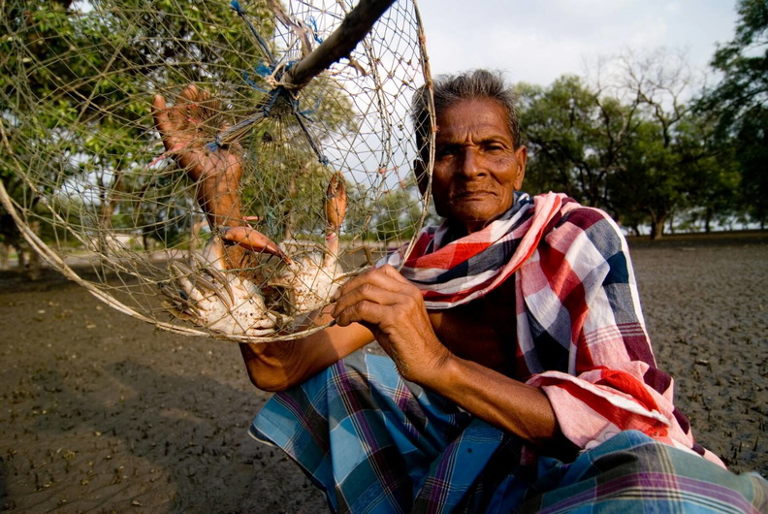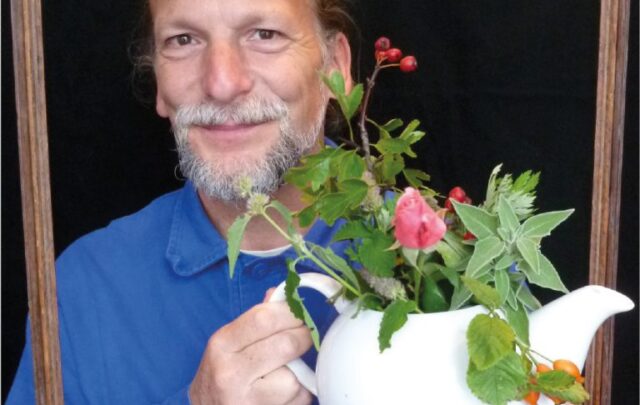A happy International Day of Peasant’s Struggle to you. Talking of which, I’m still struggling away trying to write my book about peasants while the rest of the farm crew are up in London protesting about government inaction on climate change, which means I’m having to do a bit of proper work as well for a change – all reasons why this blog is wallowing in the doldrums at the moment.
So here are just a few nuggets to keep it ticking over for the time being. I’m hoping normal service will resume in the autumn.
In the book draft, I’d been penning a few critical thoughts concerning Emma Marris’s take on ‘post-wilderness’. Then I went out to do some farm chores, one of which was removing old shreds of plastic mulch littering the place. Under almost every one, I found a nest of ants mightily pissed off at the disturbance and the consequent need to move their precious eggs. Post-wilderness. What to make of it all, I can’t say.
Prior to the post-wilderness section, I crafted some thoughts on future energy scenarios, which prompted me to finally read this paper by Victor Court that Joe and Clem linked on here a while ago. My thanks to them for doing so, it’s a real cracker – not least because it connects up various issues of interest to me, including the matter of perennial crops in the context of r and K selection. An excerpt from the paper:
“the [principle of maximum entropy production (MEP)] provides the explicit criteria linking selection at the individual level with emergent and directional properties at higher levels of organization such as communities and ecosystems … there are three different MEP selection pressures at work during the development of an ecosystem. The first maximizes the rate at which entropy production increases through successional time, which, initially at least, is achieved via rapid colonization of species with fast individual/population growth rates called ‘r-selected species.’ The second selection component of MEP is for maximum sustained entropy production during maturity. This is achieved via maximizing biomass and structural complexity, which necessarily involves longer-lived, larger, slower-growing organisms named ‘K-selected species.’ The third selection component is for stress-tolerating species extending the effective mature phase and postponing retrogression of the ecosystem. Thus, given the existence of ecological disturbance in the landscape, the MEP theory leads to the prediction that there should be long-term co-existence of r- and K-selected species, a directional transition from r- to K-selected species during succession, and increasing predominance of K-selected species in ecosystems with longer disturbance return times.”
To my mind, this is suggestive of the hard trade-offs I hypothesized between productivity and longevity in temperate perennial grain crops and the unpromising options for artificial selection to create a win-win across those dimensions. Maybe it’s also suggestive of (1) an energetic basis to that elusive idea, an emergent property of ecosystems, which ecologists I’ve debated with on here like Ford Denison and Andy McGuire treat with great skepticism, and (2) a similar dynamic in human societies and civilizations when a new and abundant source of energy is tapped – from the high energy throughput, high entropy ‘r’ phase to the low energy throughput lower entropy ‘K’ stage. In that respect, perhaps we can expect a small farm future that will resemble aspects of the small farm past, unless and until it’s disturbed by the discovery or creation of new energetic stocks.
Meanwhile, I’m currently reading David Montgomery’s book Growing A Revolution: Bringing Our Soil Back to Life. I’d be interested to hear the thoughts of anyone who’s read it.
I’m also continuing to ponder my comment policy in the light of recent discussions on this site here and here, and also in the light of events in the wider world – especially the mass murder of people in New Zealand on the grounds that they were Muslim, by a murderer who invoked some of the same Islamophobic tropes that I’ve tolerated up to now on this site. Then again, he also invoked various environmentalist tropes, prompting some people (not in good faith, IMO) to identify him with an eco-terrorism of limits and boundaries. If anyone feels they have insights in these murky waters I’m (probably) interested to hear them…
Moving on, the blog post I’d most like to write at the moment but don’t have time to do properly is one about commons, and in particular the need to go beyond an Ostrom vs Hardin duality. I’ve recently seen a few posts and tweets suggesting that it’s wrong to even mention Hardin on the grounds of his racism, eugenicism and general wrongheadedness (hmmm, back to the comments policy issue…) But a true grasp of Ostrom’s work and that of other analysts of common pool resource regimes surely involves appreciating that successful CPRs are successful precisely inasmuch as they recognize the dangers of a Hardin-style tragedy and take well-crafted steps to avoid it. Trying to erase Hardin from polite discussion is about as sure a way of realizing his presentiments as I can imagine. More on that at some point soon, I hope.
Finally, our friend Adam Tooze – star of the this recent post guest-written by Michelle Galimba – has penned an interesting article in the LRB essentially arguing that Trump’s USA is gearing up for a gloves-off superpower showdown with China that constitutes a break with the narrative of globalization since the 1990s, but not with the longer-term reality of a US-led world political order, to which the globalization model now stands as a threat. What has ended, according to Tooze, is any claim on the part of the US that it has a wider, benevolent political model to share with the world. Or as some old TV celeb has-been recently put it, “From this day forward it’s going to be only America first, America first”. Hey, I think Professor Tooze must have been reading Small Farm Future.






